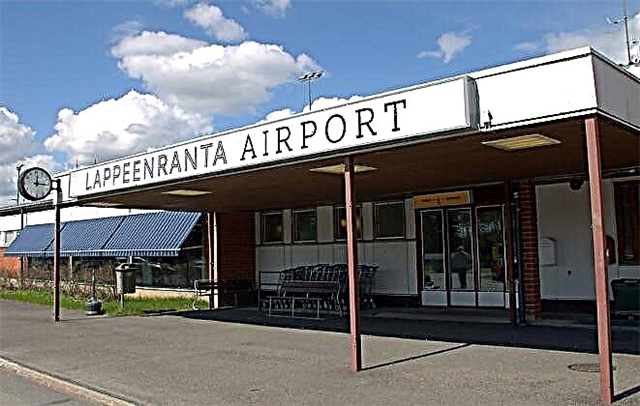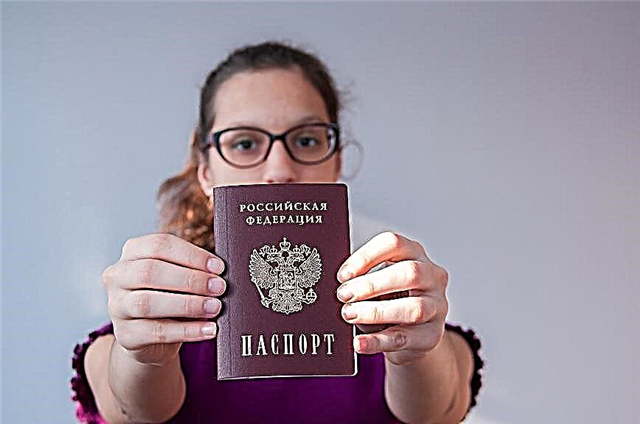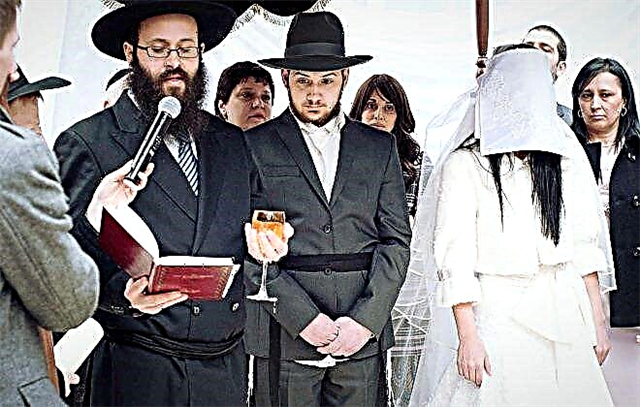It is believed that Jews, who are taught to respect halakha (traditional Jewish law) from childhood, have a responsible attitude towards family relations. For this and other reasons, some residents of the CIS countries want to start a family with an Israeli. Is it possible to register a marriage in Israel if the other half is not Jewish?

General information about marriage in Israel
In the Jewish state, representatives of religions recognized in Israel - Jews, Muslims, Christians and Druze - have the right to register a marriage and hold a religious ceremony.
Future spouses can choose one of the following ways to legitimize the relationship:
- rabbinical marriage - only Jews and Jews can be married;
- church union - the bride and groom belong to the Christian religions;
- consular marriage - is concluded in the embassy of one of the countries on the territory of Israel;
- marriage abroad - if the bride and groom are non-religious or Jewish, but do not want to enter into a rabbinical marriage;
- marriage union abroad with the presence of one spouse - the procedure is legal in Bolivia, Paraguay, Costa Rica, Honduras and certain states of America;
- registration of marriage abroad without the presence of the bride and groom - in the countries of South America and the state of Montana (USA).
In Israel, the registration of civil (secular) marriage is recognized, when a non-religious bride and groom draw up and sign a contract on joint residence, which is legalized by the Israeli Ministry of Internal Affairs.
Israel Marriage Law
In November 2021, the Israeli Knesset (parliament) passed a marriage law. On its basis, couples who do not profess one of the recognized religions, as well as non-religious spouses, received permission to officially legalize family relations in the territory of the State of Israel.
Israel's marriage laws provide that non-religious couples can register their marriage in the country if:
- future spouses permanently reside in Israel (at least 3 years);
- those wishing to marry have reached the age of 18;
- the bride and groom are not blood relatives.
Believing Jews create a family and build a family life on the basis of the regulations written in halakha - the system of laws of the Torah, Talmud and rabbinical interpretations.
Future spouses - adherents of Orthodox Judaism, have the right to legalize relations in a rabbinical court through a religious ceremony.
Relationship to family and marriage in Israel
Jews living according to halakha believe that creating a family is the will of God for man and the commandment specified in the Torah.
According to Jewish traditions, the conclusion of a marriage union is preceded by a "proposal" - a promise of the desire to marry at a specified time, which a man and a woman give each other. A marriage is concluded between a Jew and a Jew in a synagogue according to the Jewish rite.
In accordance with the law on marriageable age, in Israel, both boys and girls have the right to start a family from the age of 17. Although for the newlyweds, the parents remain the authority, according to Jewish traditions, the head of the newly formed family is the man.
Civil marriage concept
A civil marriage in Israel is not an actual cohabitation, but the official registration of a marriage in Israel between a man and a woman who do not wish to participate in a religious marriage ceremony.
The bride and groom submit a petition to the marriage registrar at the Israeli Ministry of Justice about their desire to enter into a secular marriage. This petition and accompanying papers are sent to religious courts for verification.
If the courts confirm that the bride and groom do not belong to recognized denominations, the spouses will be invited to the Ministry of Justice to register the marriage union.
Registration of marriage with an Israeli citizen in the CIS
To marry an Israeli in Russia, first find out if the registry office closest to you registers foreign marriages.
Foreign marriages in Moscow are registered by the Wedding Palace No. 4. The official website of the institution contains contact information, address, opening hours and receiving documents.
One of the future spouses has the right to submit an application for registration of marriage relations.

Together with the application, the following documents are submitted to the registry office:
- national Russian passport (from a citizen of the Russian Federation);
- Israeli passport or international passport (from an Israeli citizen);
- notarized and apostilled certificate of termination of the previous marriage (the document is issued by the Ministry of Internal Affairs of Israel);
- Apostilled certificate of marital status certified by a notary (issued by the Israeli Ministry of Internal Affairs and valid for 14 days);
- a receipt for payment of the state duty (350 rubles). The procedure for paying the state duty and details for paying the duty in the Moscow registry office are indicated on the official website of the Mayor of Moscow;
- completed marriage registration application form. You can download the form on the official web site of the Mayor of Moscow.
On the day of marriage, the spouses must be present at the registry office and put personal signatures in the registration book.
Legalization of the marriage union in Israel
A marriage between an Israeli citizen and a foreigner outside the Jewish state, for example, in Ukraine, Russia, Cyprus or other countries, should be legalized in Israel. Upon completion of legalization, the non-Jewish spouse receives a certificate of permanent resident of Israel (orange passport).
The answer to the question whether a foreign spouse is obliged to accept Israeli citizenship: no, it is not obliged, but can exercise this right after receiving an orange passport.
List of documents for the legalization of marriage
To legalize the marriage union you will need:
- a form filled in Hebrew or English for a foreign spouse to enter Israel;
- a photocopy of the foreign passport of a non-Jewish spouse;
- original and copy of the birth certificate of the foreign spouse (with apostille);
- original and copy of a certificate of marital status of a foreign spouse before marriage with an apostille stamp (issued at the registry office at the place of residence);
- original and photocopy of a police clearance certificate from the Ministry of Internal Affairs of the region of residence of a non-Jewish spouse;
- the notarized original of the marriage certificate with an apostille (presented to the employees of the Israeli Ministry of Internal Affairs);
- a notary certified statement on the presence of a minor child from a previous marriage;
- original and copy of the certificate of name or surname change before the wedding (with apostille);
- original and copy of the certificate from the place of work of the invited spouse;
- original and photocopy of a certificate of employment of an Israeli with a printout of information about the salary;
- proof of the reality of family relationships (photos, e-mails, and the like);
- a letter about the history of acquaintance of spouses and life together;
- letters from friends and relatives of a foreigner characterizing his personality and his family;
- receipts for payment of utilities for the last 3 months;
- rental documents or a certificate of ownership of the apartment (presented by the inviting spouse).
Since some documents will be needed for a visit to other Israeli government services, make photocopies of the papers that you will hand over to the Ministry of Internal Affairs.
How the spouse is called
To issue a call to the second half, an Israeli spouse applies to the Israeli Ministry of Internal Affairs and fills out a special form.
After receiving official permission from the Ministry of Internal Affairs to enter Israel, the foreign spouse issues a tourist visa. Upon arrival in the country, he is obliged to visit the office of the Ministry of Internal Affairs at the place of residence to change the status of "tourist" to the status of "spouse".

The process of legalizing marriage
To legalize a registered marriage in Israel, a husband and wife need to go through the following steps:
- The first visit to the Israeli Ministry of Internal Affairs: employees of the Ministry of Internal Affairs issue a form with a list of documents for legalizing marriage and a questionnaire on changing the status of a foreign spouse to a family one. The personal data of the non-Jewish spouse is entered into the questionnaire, after which the applicant sends the completed questionnaire to the "Nativ" service. A few months later, the family is invited to the next appointment at the department of the ministry.
- Second visit to the ministry: a specialist accepts a package of papers and opens a case on the legalization of the marriage union. The spouses are invited to the department in a month.
- Third visit to the Ministry of Internal Affairs: in the presence of an interpreter, each spouse is interviewed to verify the truth of the marriage. The husband and then the wife are asked questions about family relationships. After a successful interview, the foreign spouse is issued a work visa for a period of 6 months.
- A trip to the Nativ liaison office (Jerusalem): the agency's specialists check the originals of documents and conduct interviews with the husband and wife. If the spouse is an Israeli citizen is a repatriate from the former USSR, then the repatriation papers are presented to the department.
- The fourth visit to the Ministry of Internal Affairs: the husband and wife bring documents to the department confirming their cohabitation by the family (receipts for utilities, letters from relatives and friends about this family, a letter from the house manager, joint photographs, etc.). A work visa is extended to a foreign spouse.
- The fifth meeting at the ministry: the husband and wife again present to the specialists of the department the papers proving the reality of family ties. Separately, with each family member, conversations are held to find out the truth of close relationships. The answers of the husband and wife are recorded on paper and signed by the spouses.
- Sixth visit to the Ministry of Internal Affairs: registration of "teudat zeut" (valid for 1 year) - orange-colored identity cards for persons permanently residing in Israel, but not being its citizens. To issue a certificate, a non-Jewish spouse hands in 2 photographs, a Russian passport and pays the cost of "teudat zeuta". After receiving the orange ID, the spouses visit the Ministry of Internal Affairs once a year.
- Seventh visit to the ministry: after checking the documents, interviews are held with the husband and wife to confirm the reality of family relations. As a result of the meeting, the non-Jewish spouse is issued a new orange passport for 1 year until the next visit to the ministry.
Every year, a married couple comes to the department of the Ministry of Internal Affairs with a standard set of documents (receipts for payment of utilities, salary certificates, letters from work colleagues, relatives and friends, a letter from the house manager, joint photos) and undergoes an interview to prove the seriousness of the family relationship ...
Israeli citizenship through marriage
Israeli law does not confer citizenship on a non-Jew on the basis of a marriage union with an Israeli citizen. A foreign spouse will receive Israeli citizenship through marriage after 5 years of residence in the state after legalization.
Any mistake made by the spouses during the legalization process threatens with deportation from the country.
Divorce in Israel
Divorce claims are considered by Israel's religious courts. As a result of the consideration of the case by a religious court, the husband hands over to his ex-wife a "get" - a divorce document.
If the husband and wife are not religious or are of different denominations, they divorce the marriage in civil family court.
Repatriation in Israel, if the spouses are divorced, allows the foreign spouse to avoid deportation and stay in the country. If the divorce occurred before the completion of the legalization procedure, the non-Jewish spouse submits a petition to the Ministry of Internal Affairs with justified reasons for staying in Israel.
Fictitious marriage and its consequences
In order to achieve the goal of becoming a citizen of Israel, some decide to enter into a sham marriage with a Jew.
In accordance with Israeli law, a foreign woman who has married an Israeli citizen is not eligible for permanent residence on the basis of a marriage certificate.
In order to extend a tourist visa after arriving in the country and subsequently obtain a certificate of a permanent resident of Israel, you need to go through many checks in the country's Ministry of Internal Affairs for the truth of family relations.
For a long time, the parties to a marriage of convenience must repeatedly prove to the Ministry of Internal Affairs the sincerity of their feelings for each other and their intention to live as one family in Israel. If the employees of the ministry have suspicions about the married couple, the foreign spouse will be punished for a fictitious marriage in Israel - deportation.
Finally
The creation of a marriage union with a Jew makes it possible to find a faithful life partner, the prospect of becoming a citizen of Israel, and living as a family abroad. But the spouses need to be ready for the collection of documents and constant visits to the Israeli Ministry of Internal Affairs in order to legalize the marriage.











